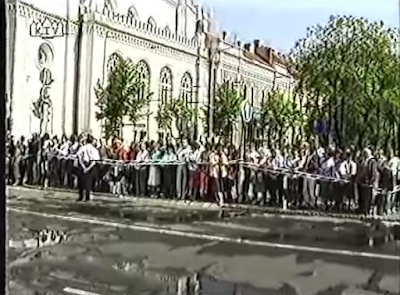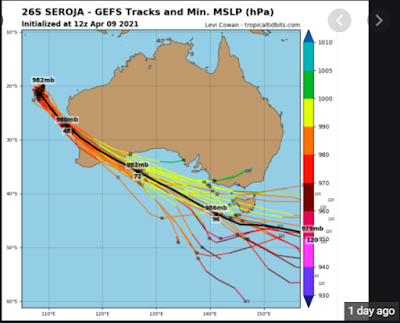09:00 We can stay in bed a while - hurrah! Since our clocks went forward an hour a couple of weeks ago, there's now only a 7-hour time difference between us and Sarah, our daughter in Perth, Australia, so 4:30 pm their time, when we normally zoom, is now 9:30 am here, compared to 8:30 am in winter. To make it even better, Sarah texts us to say that she, Francis and the twins are spending the day down by the Swan River today, so she asks to put back the zoom till 9 pm their time (2 pm here).
Lois and I remember well how we spent an afternoon down by the river the last time we visited, in 2018. Sarah and her husband Francis hired a boat while we looked after the twins.
12:00 We have lunch - sleet and/or snow is falling outside. What crazy weather, anyone would think it was April haha!!!!
What Churchill told the House of Commons in full, however, was, that "Even though large tracts of Europe and many old and famous States
have fallen or may fall into the grip of the Gestapo and all the odious
apparatus of Nazi rule, we shall not flag or fail.
"We shall go on to the end, we shall fight in France, we shall
fight on the seas and oceans, we shall fight with growing confidence and growing
strength in the air, we shall defend our Island, whatever the cost may be, we
shall fight on the beaches, we shall fight on the landing grounds, we shall
fight in the fields and in the streets, we shall fight in the hills; we shall
never surrender, and even if, which I do not for a moment believe, this Island
or a large part of it were subjugated and starving, then our Empire beyond the
seas, armed and guarded by the British Fleet, would carry on the struggle,
until, in God’s good time, the New World, with all its power and might, steps
forth to the rescue and the liberation of the old."
The words of this speech are quite well known to old codgers like Lois and me. But I must admit I've always wondered why Churchill didn't stop at "we shall never surrender" (4 lines up from the end). That would have been the dramatic climax. So why did he go on to tell the nation that there was a chance of defeat, at least, for a time, and how that would play out - surely that was madness??!!!!
Steve passes me the explanation: that in fact there was a compelling reason for Churchill to add these extra remarks. The American government wanted him to. The USA of course was still neutral at this stage – Churchill’s initial draft included a reference, which he later deleted by hand, to its ‘strange detachment’ in the face of the Nazi menace. However, President Roosevelt made clear via secret channels that he wanted a commitment from Britain that even if she were defeated she would not surrender her fleet but would send it to South Africa, Australia, Canada and other parts of the Empire. If this were done, American intervention could be expected to follow quickly, he promised. So Churchill was giving Roosevelt the message that he wanted to hear – a message that is now largely forgotten.
Now it makes sense!
Fascinating stuff !!!!
As we now know, Britain was able to fight off the threat of invasion, and the gloomier vision in Churchill’s speech, prompted by Roosevelt, never came to anything. Still it's nice to know there was a "Plan B", to put it mildly!
13:00 Yesterday Tünde, my Hungarian penfriend, passed me an interesting magazine article about Prince Philip's frequent visits to Hungary with the Queen - Lois and I weren't aware that the royal couple visited the country many times.
It's especially interesting for us to see pictures from Blikk magazine of the Queen and Philip's 1993 visit to the town of Kecskemét, which we ourselves visited in 2002 with our friends, "Magyar" Mike and his wife, "Magyar" Mary. The royal party visited the Kodály schools, the Great Church and the Town Hall among other places.



















No comments:
Post a Comment